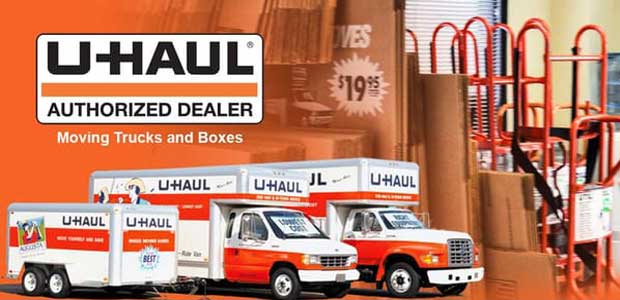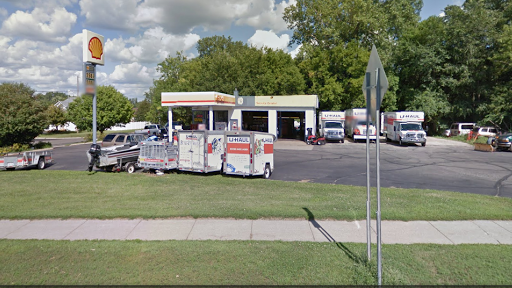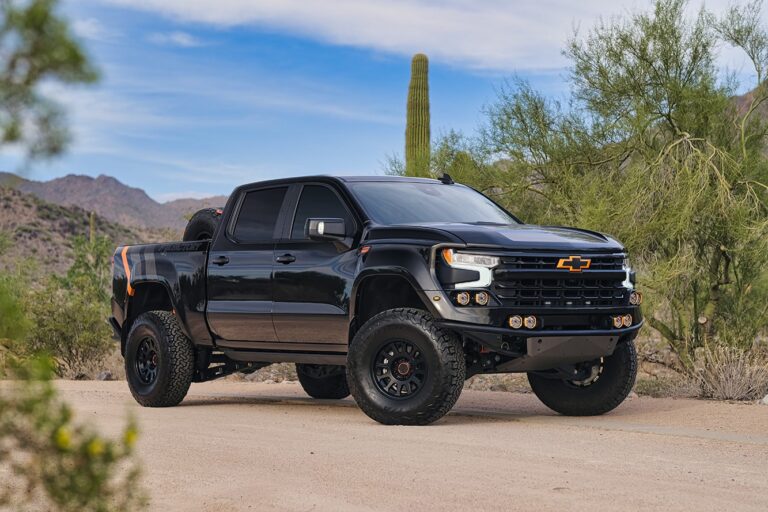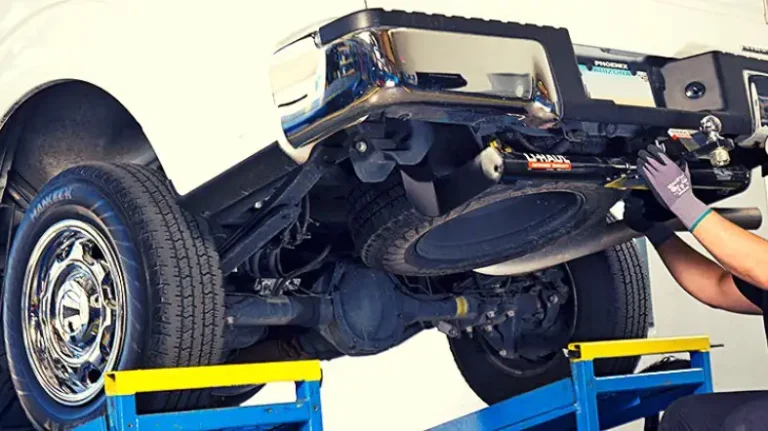U-Haul Dealer: Your Comprehensive Guide to Becoming and Thriving as a U-Haul Partner
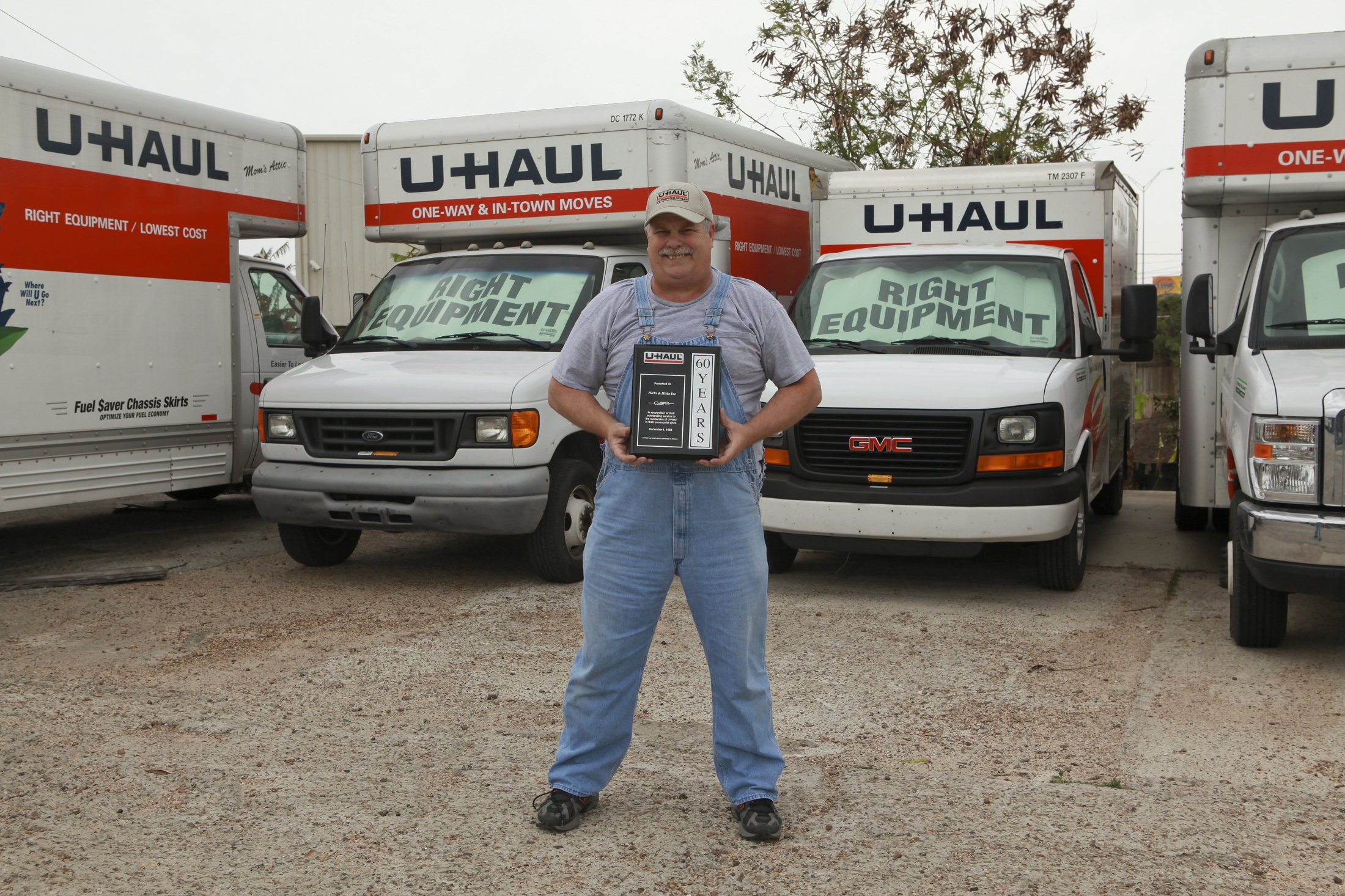
U-Haul Dealer: Your Comprehensive Guide to Becoming and Thriving as a U-Haul Partner
Introduction: The Gateway to Moving Success
In the vast landscape of personal and commercial logistics, the name U-Haul stands as an undisputed leader in do-it-yourself moving and self-storage. But behind every orange truck, trailer, and moving supply box, there’s a vital network of independent businesses – the U-Haul dealers. A U-Haul dealer is an existing business that partners with U-Haul International to offer U-Haul rental equipment and services to their local community. These partnerships are the backbone of U-Haul’s extensive reach, enabling customers to access moving solutions conveniently, often right in their own neighborhoods.
For an entrepreneur, becoming a U-Haul dealer isn’t just about adding another service; it’s about leveraging a globally recognized brand, attracting new customers, and diversifying revenue streams with minimal upfront investment. It’s a symbiotic relationship where the dealer provides a local presence and customer service, while U-Haul supplies the equipment, brand power, and logistical support. This comprehensive guide will explore every facet of becoming and succeeding as a U-Haul dealer, offering insights, practical advice, and actionable steps for anyone considering this lucrative partnership.
What Exactly is a U-Haul Dealership?
At its core, a U-Haul dealership is a strategic alliance. U-Haul, as the franchisor, doesn’t operate all of its locations directly. Instead, it relies on a network of independent businesses to act as its local agents. These businesses integrate U-Haul services into their existing operations, providing a convenient touchpoint for customers to rent trucks, trailers, and other moving equipment, as well as purchase moving supplies.
The typical profile of a U-Haul dealer is diverse, ranging from gas stations, convenience stores, and auto repair shops to hardware stores, self-storage facilities, and even small independent retail outlets. What they all share is an existing commercial location, a customer-service oriented mindset, and often, available space to park U-Haul equipment. The dealer acts as the face of U-Haul in their specific community, handling reservations, equipment dispatch and return, and assisting customers with their moving needs. This model allows U-Haul to maintain a vast, accessible network without the overhead of owning and operating every single location, while providing a significant opportunity for local businesses to grow.
The Benefits of Becoming a U-Haul Dealer
Partnering with U-Haul offers a compelling suite of advantages for an existing business:
- Revenue Generation: The most immediate benefit is the direct income generated from commissions on truck, trailer, and cargo van rentals. Dealers also earn profit margins on the sale of U-Haul moving supplies (boxes, tape, packing materials, hitches, propane). This diversified revenue stream can significantly bolster a business’s bottom line.
- Increased Foot Traffic: U-Haul’s strong brand recognition and extensive marketing efforts drive customers directly to dealer locations. While these customers come specifically for moving services, they often become aware of and purchase other products or services offered by the primary business, effectively expanding the dealer’s customer base.
- Brand Association and Trust: Aligning with a household name like U-Haul instantly lends credibility and trust to your business. Customers often choose U-Haul because of its reputation for reliability and widespread availability, which then reflects positively on the dealer’s establishment.
- Community Service: By providing essential moving and storage solutions, dealers offer a valuable service to their local community, becoming an integral part of their neighborhood’s infrastructure.
- Low Investment & High Return Potential: Unlike many franchise opportunities, becoming a U-Haul dealer typically requires minimal to no upfront capital investment from the dealer for the U-Haul specific equipment. U-Haul provides the trucks, trailers, and often the initial inventory of moving supplies. The primary "investment" from the dealer is space, time, and dedication to customer service.
- Marketing Support: U-Haul’s national advertising campaigns, online reservation system, and local lead generation efforts mean dealers benefit from a continuous stream of potential customers without having to invest heavily in marketing U-Haul services themselves.
- Comprehensive Training and Ongoing Support: U-Haul provides thorough training for dealers and their staff on equipment, rental procedures, and their proprietary operating system. Ongoing support is also available, ensuring dealers have the resources to succeed.
How to Become a U-Haul Dealer: A Step-by-Step Guide
The process of becoming a U-Haul dealer is structured and designed to ensure a successful partnership. Here’s what it typically involves:
Step 1: Meet the Basic Requirements
Before even contacting U-Haul, assess if your business fits the general criteria:
- Established Business: You need an existing commercial business with appropriate zoning.
- Adequate Space: Sufficient, accessible space for parking U-Haul trucks, trailers, and potentially U-Box containers. This is crucial for equipment storage and customer maneuverability.
- Reliable Internet Access: Essential for U-Haul’s computer-based reservation and rental system.
- Customer Service Focus: A genuine commitment to assisting customers with their moving needs.
- Operational Hours: Ability to accommodate U-Haul customers during reasonable business hours.
Step 2: Initial Inquiry
The first official step is to express your interest. You can typically do this through the "Become a Dealer" section on the U-Haul corporate website or by calling their dealer recruitment line. You’ll provide basic information about your business and location.
Step 3: Application Process
If your initial inquiry looks promising, U-Haul will guide you through a more detailed application. This will involve providing comprehensive information about your business, including its type, operating hours, photos of your property, and details about your current customer base.
Step 4: Site Visit and Assessment
A U-Haul representative (often a local Area Field Manager) will visit your location. This visit is critical for U-Haul to assess your property’s suitability, including parking space, accessibility, visibility, and the potential demand for U-Haul services in your area. They’ll also discuss your business operations and how U-Haul can integrate seamlessly.
Step 5: Contract Agreement
If your site is approved, you’ll receive a dealer agreement to review and sign. This legal document outlines the terms of the partnership, including commission structures, responsibilities of both parties, and operational guidelines. It’s advisable to review this thoroughly.
Step 6: Training and Setup
Once the agreement is finalized, U-Haul will provide comprehensive training for you and your staff. This training covers everything from using their proprietary U-Haul system for reservations and transactions to equipment inspection, safety protocols, and customer service best practices. Simultaneously, U-Haul will deliver initial equipment (trucks, trailers) and moving supplies to your location, along with necessary signage.
Step 7: Launch and Ongoing Operation
With training complete and equipment in place, you’re ready to start serving U-Haul customers! U-Haul’s support doesn’t end here; you’ll have ongoing access to their support teams, marketing resources, and regular visits from your Area Field Manager to help you succeed.
Key Responsibilities and Operations for a U-Haul Dealer
Running a successful U-Haul dealership involves several key responsibilities:
- Exceptional Customer Service: This is paramount. Dealers are responsible for assisting customers with reservations, checking equipment in and out, answering questions, and resolving any issues.
- Equipment Management: This includes performing basic visual inspections of equipment before and after rentals, ensuring trucks are clean and fueled (if applicable), and reporting any maintenance needs to U-Haul. Dealers also manage the parking and organization of the equipment fleet.
- Inventory Management: For moving supplies, dealers are responsible for ordering, stocking, and selling items like boxes, tape, and packing materials.
- System Proficiency: Dealers and their staff must be adept at using U-Haul’s computer system for all rental transactions, tracking inventory, and accessing support resources.
- Site Maintenance: Keeping the U-Haul designated area clean, safe, and easily accessible for customers is crucial for a positive experience.
- Adherence to U-Haul Policies: Dealers must operate in accordance with U-Haul’s established policies and procedures to maintain brand consistency and operational efficiency.
Maximizing Your U-Haul Dealership’s Success
To truly thrive as a U-Haul dealer, consider these strategies:
- Prioritize Customer Satisfaction: Happy customers lead to repeat business and positive reviews, which are vital in today’s digital age. Go the extra mile to make their moving experience smooth.
- Actively Promote Moving Supplies: Moving supplies offer excellent profit margins. Train your staff to consistently offer and upsell these items to every customer.
- Maintain Equipment Presentation: Ensure trucks and trailers are clean, well-maintained, and ready for the next customer. A well-presented fleet reflects positively on your business.
- Leverage U-Haul’s Resources: Utilize the training materials, marketing support, and direct communication channels with your U-Haul Area Field Manager. They are there to help you succeed.
- Integrate U-Haul with Your Core Business: Look for synergies. If you run an auto shop, offer U-Haul customers discounts on tune-ups. If it’s a convenience store, place U-Haul supplies prominently.
- Ensure High Visibility: Make sure U-Haul signage is clear, prominent, and easy for customers to spot from the road.
- Consider Expanding Services: If feasible and aligned with your business, consider offering additional U-Haul services like propane tank refills or U-Box portable storage containers.
Potential Challenges and Solutions
While highly rewarding, operating a U-Haul dealership can present a few challenges:
- Equipment Availability: During peak moving seasons or in high-demand areas, specific equipment might be scarce.
- Solution: Communicate clearly with U-Haul’s dispatch, manage customer expectations upfront, and utilize the reservation system effectively.
- Staff Training and Turnover: Ensuring all staff are adequately trained and consistent in their U-Haul operations can be an ongoing task.
- Solution: Implement a structured internal training program, provide refreshers, and create easily accessible cheat sheets for common tasks.
- Space Constraints: Managing a fleet of vehicles can be challenging if your property has limited space.
- Solution: Develop an efficient parking plan, communicate closely with U-Haul about your capacity, and explore options for overflow parking if absolutely necessary.
- Customer Service Issues: Dealing with frustrated customers or unforeseen problems can be stressful.
- Solution: Empower staff with problem-solving skills, provide clear escalation paths, and emphasize empathetic communication.
- Seasonal Fluctuations: Moving demand is highly seasonal, with peaks in summer and end-of-month periods.
- Solution: Adjust staffing levels accordingly, focus on promoting moving supplies during slower periods, and plan inventory.
Table: Financial Aspects & Potential Earnings for a U-Haul Dealership
Understanding the financial model is crucial for any potential dealer. While U-Haul provides the major equipment, the dealer benefits through commissions and sales.
| Aspect | Description | Typical Range/Detail | Notes |
|---|---|---|---|
| Initial Dealer Investment | Upfront capital required from the dealer to become a U-Haul partner. | Minimal to None | U-Haul provides the rental equipment (trucks, trailers, U-Box containers). The dealer leverages their existing business infrastructure and property. |
| Commission on Rentals | Percentage earned by the dealer on the base rental fees for trucks, trailers, vans, etc. | Varies, typically 15-20% | This percentage can fluctuate based on specific dealer agreements, rental volume, and equipment type. It’s a significant portion of dealer revenue. |
| Moving Supply Sales Profit | Profit margin earned on the sale of U-Haul branded moving boxes, tape, packing materials, locks, etc. | 25-40% margin | Dealers purchase supplies from U-Haul at a wholesale rate and sell at the recommended retail price, keeping the difference. These are often high-margin impulse purchases. |
| Propane Sales Profit | If the dealer also offers U-Haul’s propane refill service. | Good margin, varies | Requires U-Haul-approved propane storage and dispensing equipment, along with certified staff. Adds another revenue stream and attracts new customers. |
| Hitch Installation Profit | If the dealer is also a U-Haul hitch installer. | Varies by service | Requires specific training and equipment. Another specialized service that can boost revenue. |
| Potential Monthly Revenue (Average Dealer) | Estimated additional income generated by the U-Haul dealership. | $500 – $5,000+ | Highly dependent on the dealer’s location, local demand, rental volume, customer service quality, and proactive selling of supplies. Top dealers can earn significantly more. |
| Increased Foot Traffic Value | Indirect revenue generated from new customers who visit for U-Haul services and then purchase from the dealer’s primary business. | Significant, but hard to quantify | This "halo effect" is a major hidden benefit, driving sales for gas, convenience items, auto services, or other products. |
| Dealer’s Operational Costs | Costs incurred by the dealer to support the U-Haul operation. | Variable | Includes staff time dedicated to U-Haul services, minor utility usage, and maintaining the U-Haul designated area (cleaning, snow removal, etc.). These are often absorbed into existing business overhead. |
| Marketing Support | Resources provided by U-Haul to drive customers to the dealer’s location. | Provided by U-Haul | Includes national advertising, online reservation system, website listings, and local lead generation, reducing the dealer’s marketing burden for U-Haul services. |
Frequently Asked Questions (FAQ) About Being a U-Haul Dealer
Q: What kind of business can become a U-Haul dealer?
A: A wide range of businesses, including gas stations, convenience stores, auto repair shops, hardware stores, self-storage facilities, tire shops, and even small independent retail businesses with suitable commercial space and a customer service focus.
Q: How much space do I need to become a U-Haul dealer?
A: The required space varies depending on the type and quantity of equipment you plan to offer (trucks, trailers, U-Box containers). You need enough accessible, commercially zoned space for equipment storage, customer maneuvering, and safe parking. A U-Haul representative will assess your site.
Q: Do I need to buy the U-Haul trucks or trailers?
A: No, U-Haul provides all the rental equipment (trucks, trailers, cargo vans, U-Box containers). As a dealer, you do not purchase the fleet; you are a partner facilitating rentals.
Q: What kind of training is provided for U-Haul dealers?
A: U-Haul offers comprehensive training for dealers and their staff. This covers using their proprietary computer system, equipment inspection and safety, rental procedures, customer service best practices, and selling moving supplies. Training is often a mix of online modules, in-person sessions, and on-site guidance from a U-Haul representative.
Q: How much money can I make as a U-Haul dealer?
A: Earnings vary significantly based on location, customer demand, rental volume, and how actively you promote moving supplies. Dealers earn commissions on rentals and profit margins on supply sales. An average dealer might earn anywhere from $500 to several thousand dollars per month, with top performers earning considerably more. The indirect benefit of increased foot traffic for your primary business is also a significant financial gain.
Q: What are the main responsibilities of a U-Haul dealer?
A: Key responsibilities include providing excellent customer service, handling rental transactions (check-ins/outs), managing U-Haul equipment (parking, basic checks), selling moving supplies, maintaining a clean and safe U-Haul area, and utilizing U-Haul’s operating system.
Q: How long does the application process take to become a dealer?
A: The timeline can vary. From initial inquiry to full operation, it can take anywhere from a few weeks to a couple of months, depending on the site assessment, contract finalization, and training schedule.
Conclusion: A Partnership for Growth
Becoming a U-Haul dealer represents a unique opportunity for existing businesses to forge a powerful partnership with an industry leader. It’s more than just adding a service; it’s about integrating a proven revenue generator, attracting new clientele, and enhancing your business’s presence and utility within the community. With minimal upfront investment, comprehensive support, and the undeniable strength of the U-Haul brand, dealers are empowered to expand their financial horizons and become an even more indispensable resource for their customers. By understanding the benefits, committing to excellent service, and proactively managing the operations, any aspiring entrepreneur or existing business owner can successfully navigate the journey to becoming a thriving U-Haul dealer.
